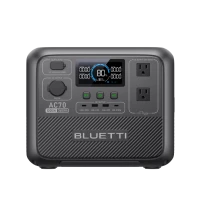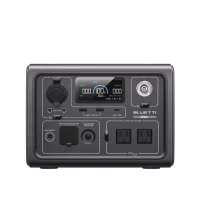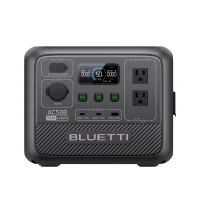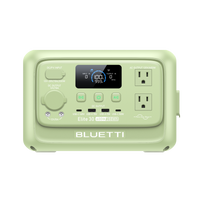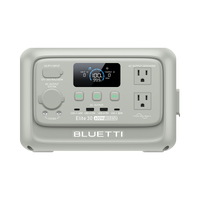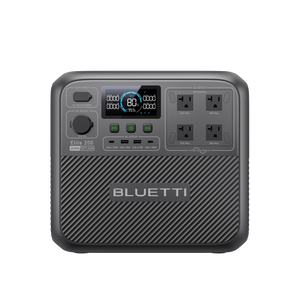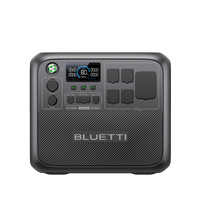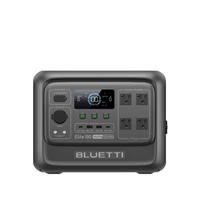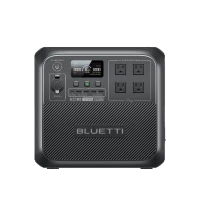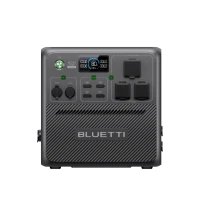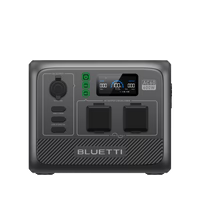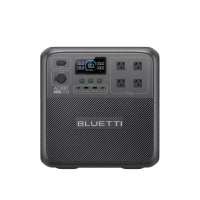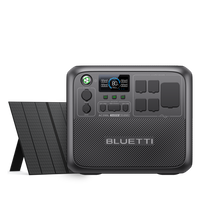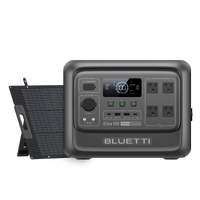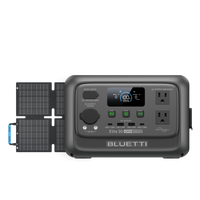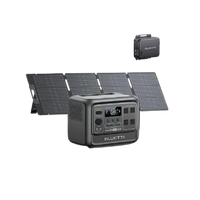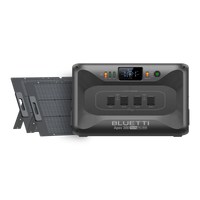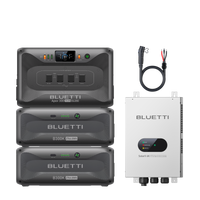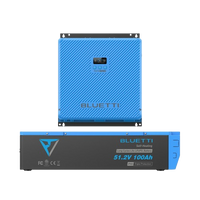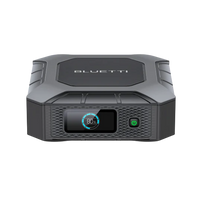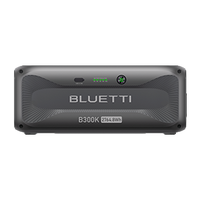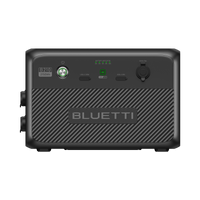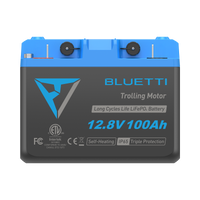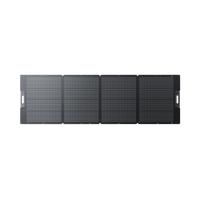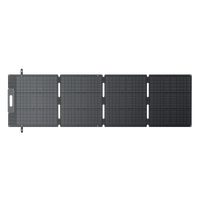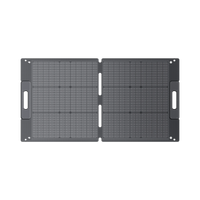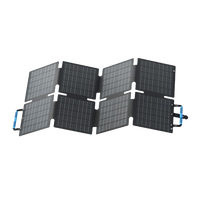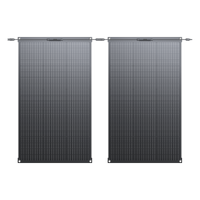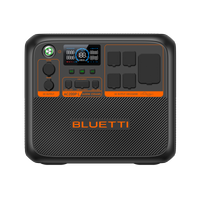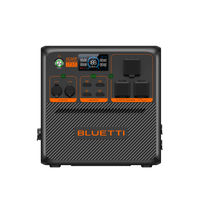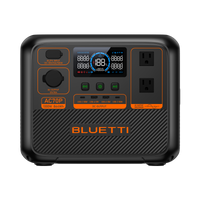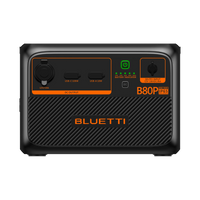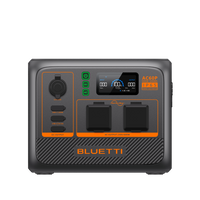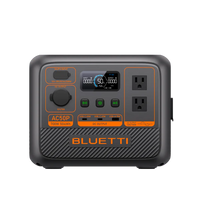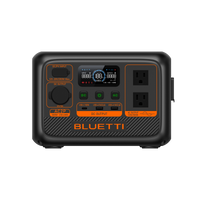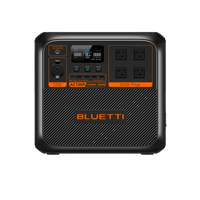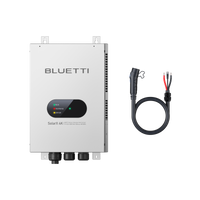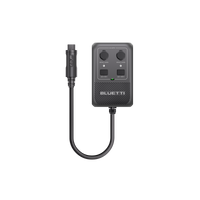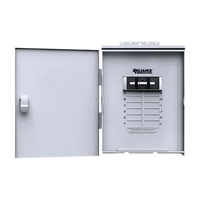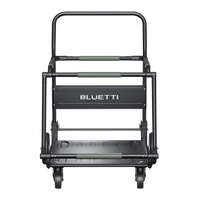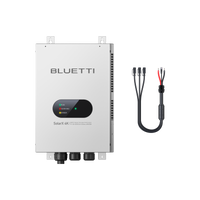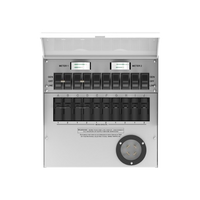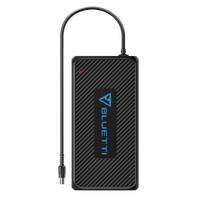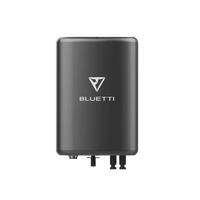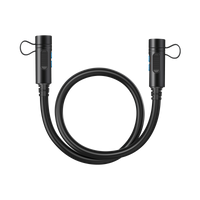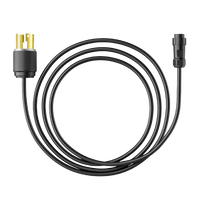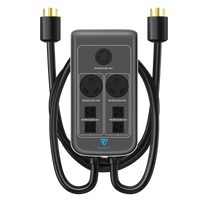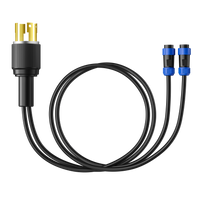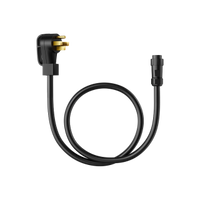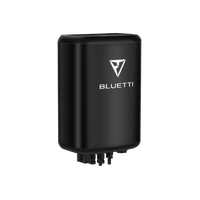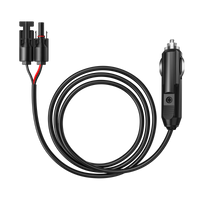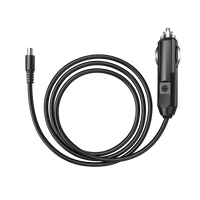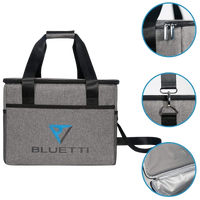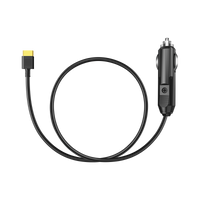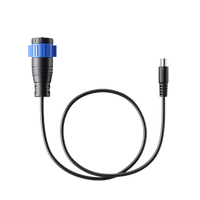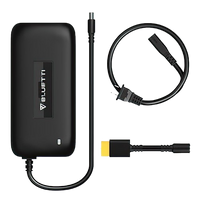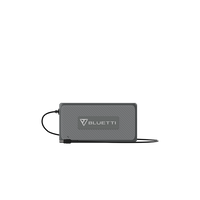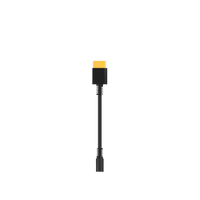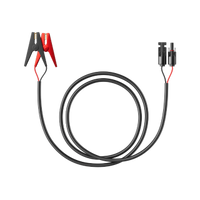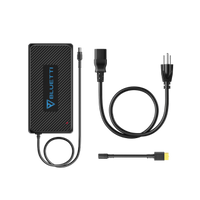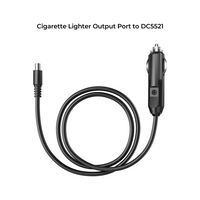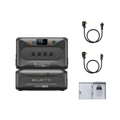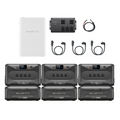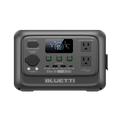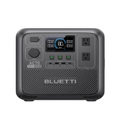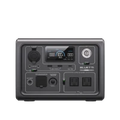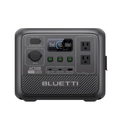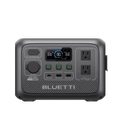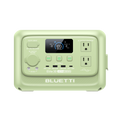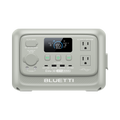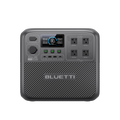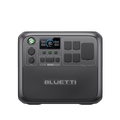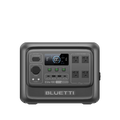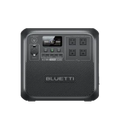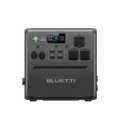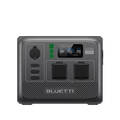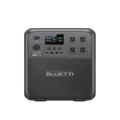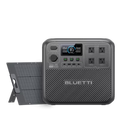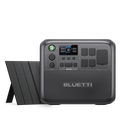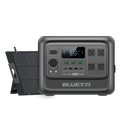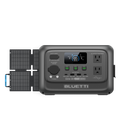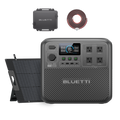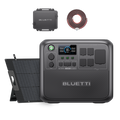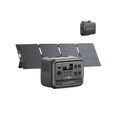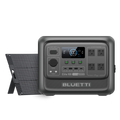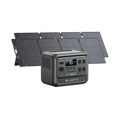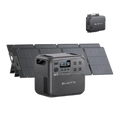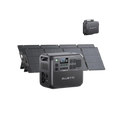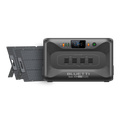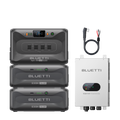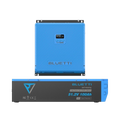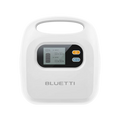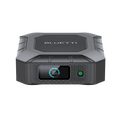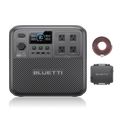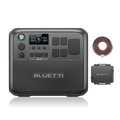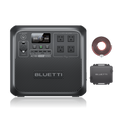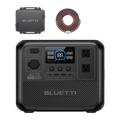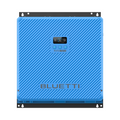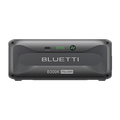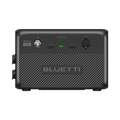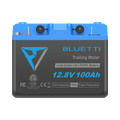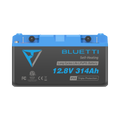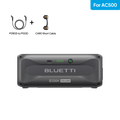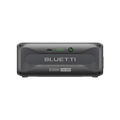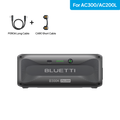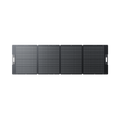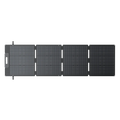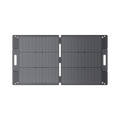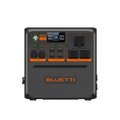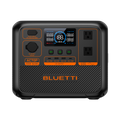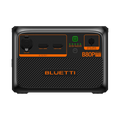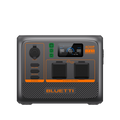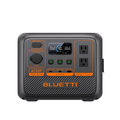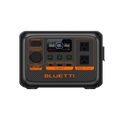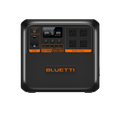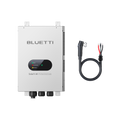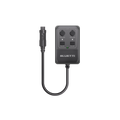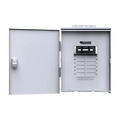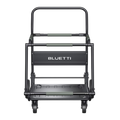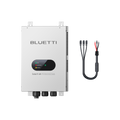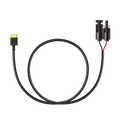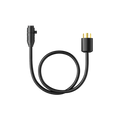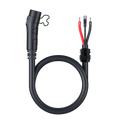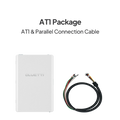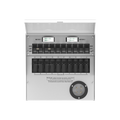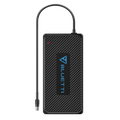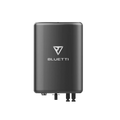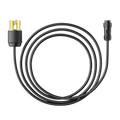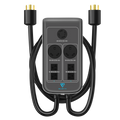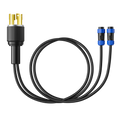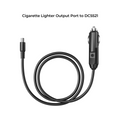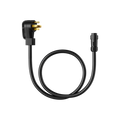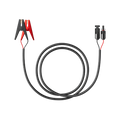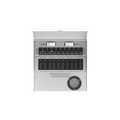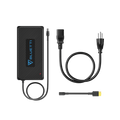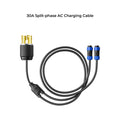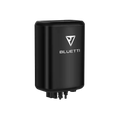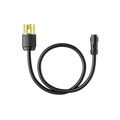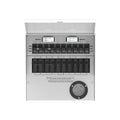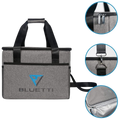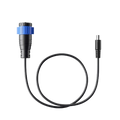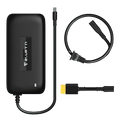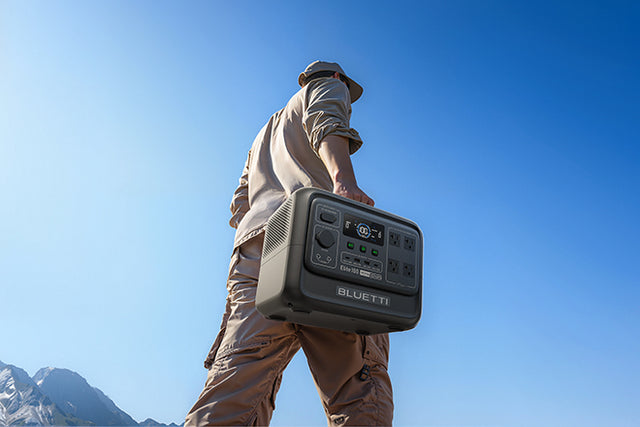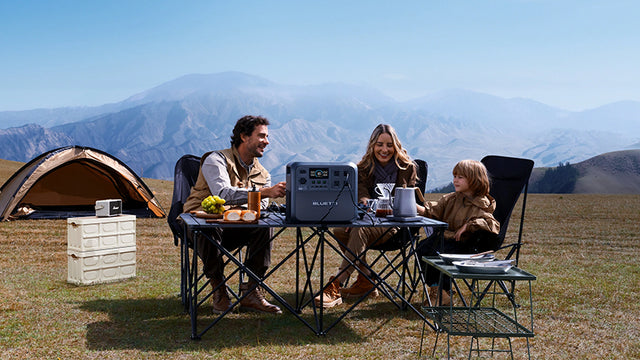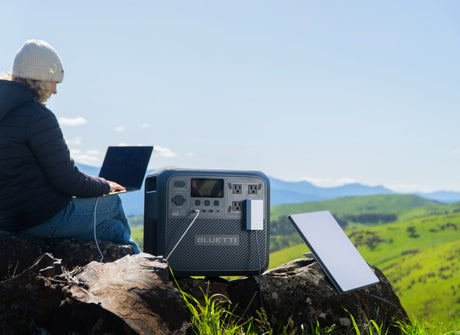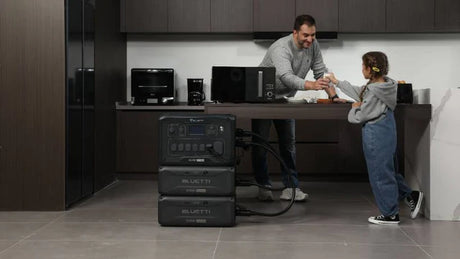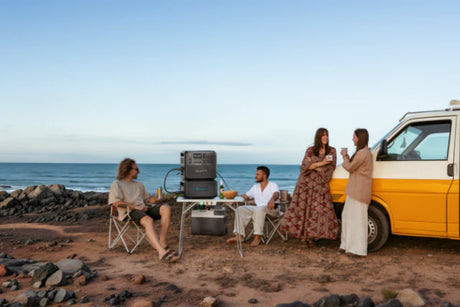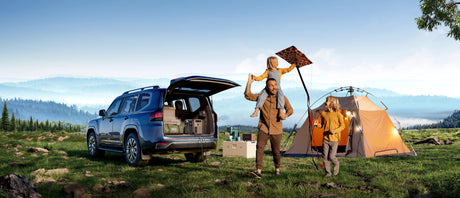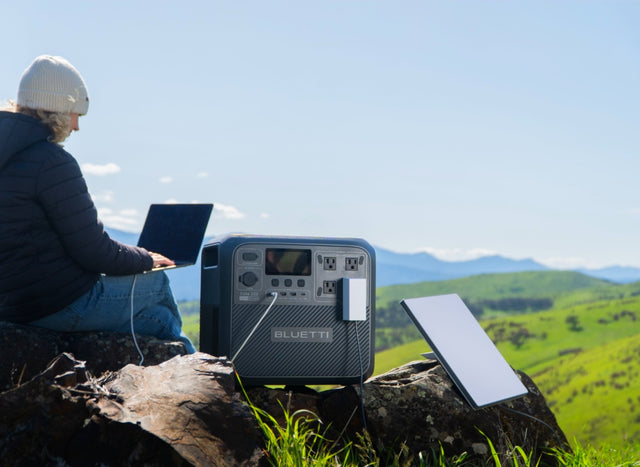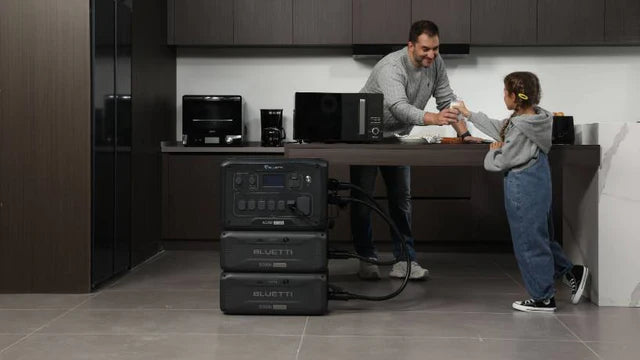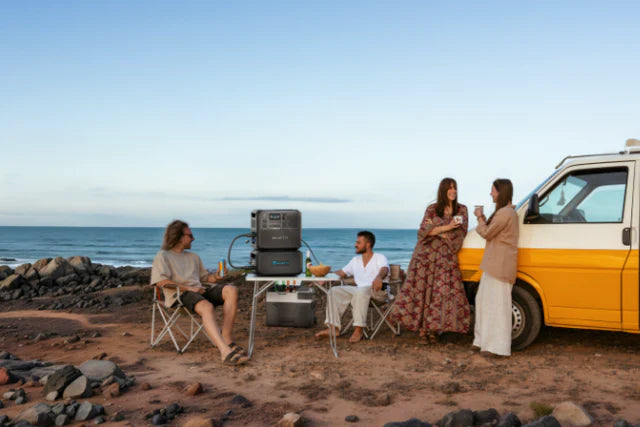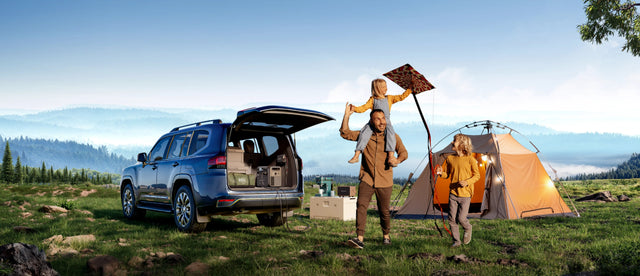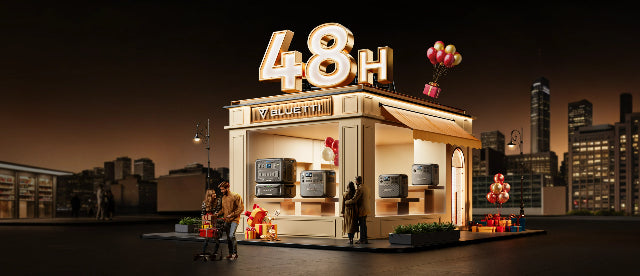Food trucks have become a staple of the culinary scene, providing a mobile dining experience that's both unique and convenient. But as a food truck owner, you know that powering your equipment can be a major expense. Traditional fuel-powered generators can be loud, costly, and have a negative impact on the environment. For this reason, some food truck owners are turning to a more sustainable and cost-effective option: portable solar panels.
If you are also considering using portable solar panels to power your food truck, there are several things to remember. This guide will discuss the benefits of using solar power, the equipment you can run with it, and any potential challenges you may encounter. With this information, you can decide whether solar power is the right choice for your food truck business.
An Overview of a Solar-Powered Food Truck
A food truck is a mobile food service business that operates out of a truck or van. They offer different food options, from tacos, burgers, and sandwiches to more specialized fare, such as gourmet cupcakes or lobster rolls.
One of the latest trends in the food truck industry is the adoption of portable solar panels to power the truck. As more and more people embrace environmentally friendly practices, it is no surprise that solar power has emerged as a go-to solution for food truck owners looking to reduce their carbon footprint.
This innovation allows food trucks to be more environmentally friendly and energy-efficient. The solar panels are typically mounted on the truck's roof or the roadside, capturing sunlight and converting it into electricity that powers the food truck's appliances and equipment.
Green Cuisine: The Many Benefits of Going Solar for Your Food Truck
Let's look at the many benefits of setting up a solar-powered food truck, from increased mobility to attract environmentally conscious customers.
Environmental Benefits
First things first, using traditional generators can produce harmful emissions and require constant refueling, which is not good for Mother Nature. But by using portable solar panels, you can generate clean energy without emissions or noise pollution. So, not only will you feel good about making sustainable choices, but you will also contribute to a cleaner and healthier planet.
Cost Savings
Now, let's get into the nitty-gritty of cost savings. Portable solar panels require low maintenance and generate electricity for free, so once installed, you will save a ton of money compared to fuel-powered generators. You will also reduce your dependence on fossil fuels and not have to worry about unpredictable gas prices.
Increased Mobility
Another benefit of a solar-powered food truck is increased mobility. Since portable solar panels generate power from sunlight, you do not need to park near a power source, which gives you way more freedom to choose your ideal location. Plus, you can move the truck to different spots throughout the day, attracting new customers and increasing revenue.
Attracting Environmentally Conscious Customers
Moreover, promoting your food truck as an environmentally friendly business can help you attract customers who prioritize sustainability. Nowadays, more and more people are becoming aware of the environmental impact of their choices and want to support businesses that prioritize sustainability. By showcasing your commitment to clean energy and eco-friendly practices, you can set yourself apart from the competition and appeal to customers who care about making positive changes in the world.
Sustainable Solutions: How Portable Solar Panels Can Power Your Food Truck Equipment

One of the great benefits of using portable solar panels to power your food truck is the range of equipment you can run without relying on traditional fuel-powered generators. Here are some examples of equipment that you can power with portable solar panels:
Refrigeration Units
Refrigeration units are among the most common items on a food truck. The reason is simple; they will be used to keep your food fresh longer. This is why most vehicles have refrigerated units installed in them. Unfortunately, these units are known to consume a lot of power and money from you when it comes to electricity bills. However, there is a way around this problem by using portable solar panels in your vehicle. These panels can help you save on energy costs while also helping you save the environment at the same time.
Lighting
Food trucks have a long life, but there are times when you will face power cuts or low voltage issues. The best way to deal with these problems is by installing portable solar panels on your food truck. These solar panels will help you generate electricity at any time of the day, even during extreme weather conditions. You can use this electricity to keep your food truck well-lit for safety and to create an inviting atmosphere. Portable solar panels can easily power LED lighting inside and outside your food truck.
Cooking Equipment
There are many cooking equipment options you can power with portable solar panels. For example, portable electric grills, hot plates, and induction cooktops are all great choices for solar-powered food trucks.
Point of Sale (POS) Systems
As a food truck owner, you should know how important it is to track sales and inventory levels. Point of sale (POS) systems allow you to do just that. However, they will always require an outlet or generator to keep running. With solar panels, however, you can charge up your POS system whenever it runs low on battery power or plugs it into an outlet when needed. Portable solar panels can easily power your point of sale (POS) system, including cash registers, credit card machines, and tablets.
Audio and Visual Equipment
Portable solar panels are great for powering audio and visual equipment on your food truck. With a solar system, you can power your PA system and display monitors without worrying about finding a place to plug in.
Audio equipment, including sound systems and microphones, are used for playing music and making announcements or talking to customers. Visual equipment includes televisions and monitors that display information about your business, such as menus, prices, or specials. It also includes security cameras that monitor activity around your truck during the day and night.
The Must-Know Factors for Running a Food Truck on Portable Solar Panels

Running a food truck with a sustainable and eco-friendly energy source benefits the environment and your business's bottom line. However, there are some factors to consider before you make the switch to solar power.
Obtain the Required Permits and Licenses
Food trucks are often mobile, but they need to be licensed or permitted by local authorities. If you want to be able to operate in different locations throughout the day or week, you need to make sure that your business has all of the permits and licenses required by local authorities. You may also want to get vehicle insurance and a business license if necessary.
These requirements may vary depending on location, so you must research the regulations. Failing to obtain the necessary permits and licenses can result in fines, legal issues, and potentially shut down your business, so make sure you comply with all requirements.
Assess Your Energy Needs
The first step in setting up a solar-powered food truck is to assess your energy needs. Consider the appliances and equipment you use in your food truck, such as the refrigerator, freezer, ventilation system, lighting, and other electrical devices. You must calculate your average daily energy consumption to determine how much power your portable solar panel system needs to generate to meet your needs.
Select the Right Portable Solar Panel System
Choosing the right portable solar panel system with the correct output voltage to match your food truck's electrical system is crucial in maximizing energy efficiency. Once you have considered your energy needs, the size of your food truck, and your budget when selecting the right system, it is time to invest in high-quality portable solar panels and equipment so that your system runs efficiently and lasts for years.
Therefore, look for solar panels with a high energy conversion rate, are durable, and can withstand extreme weather conditions. Also, invest in high-quality cables, connectors, and other equipment to ensure your system runs smoothly.
Position and Angle Your Panels Correctly
When setting up your solar-powered food truck, one of the most important considerations is the placement of your portable solar panels. To generate maximum power, your panels need to be positioned where they receive direct sunlight for most of the day. This means that you will need to carefully consider the orientation of your truck and the surrounding environment.
Ideally, you will want to park your food truck in an open area free from obstructions like buildings or trees that may cast shadows on your solar panels. If you are parking in a crowded urban area, this may be more challenging, but you can still make the most of the available space by choosing a location that receives plenty of sunlight throughout the day.
It is also worth noting that the angle of your solar panels can affect their efficiency. The general rule of thumb is to position them at an angle equal to the latitude of your location, but this may vary depending on the time of year and the sun's position in the sky. Some solar panels are designed with adjustable mounts that allow you to optimize their angle for maximum sunlight exposure.
Monitor and Optimize Your Energy Usage
Monitoring your energy usage is another key factor in optimizing your portable solar panel system's performance. Keep track of your energy consumption and production, and adjust to maximize your system's performance. Also, ensure that your food truck's electrical system is efficient by using energy-efficient equipment, maintaining proper ventilation, and reducing unnecessary energy consumption.
The Future of Food Trucks: Why Solar Power Is the Way to Go
The future of solar-powered food trucks is bright. As solar technology advances, we expect to see more efficient and cost-effective solar panels that can power a wider range of equipment. This, in turn, will make it easier for food truck owners to rely solely on solar power and eliminate the need for traditional generators.
Furthermore, as governments worldwide set ambitious targets for reducing greenhouse gas emissions, we can expect to see more incentives and support for businesses adopting sustainable practices such as solar power.









